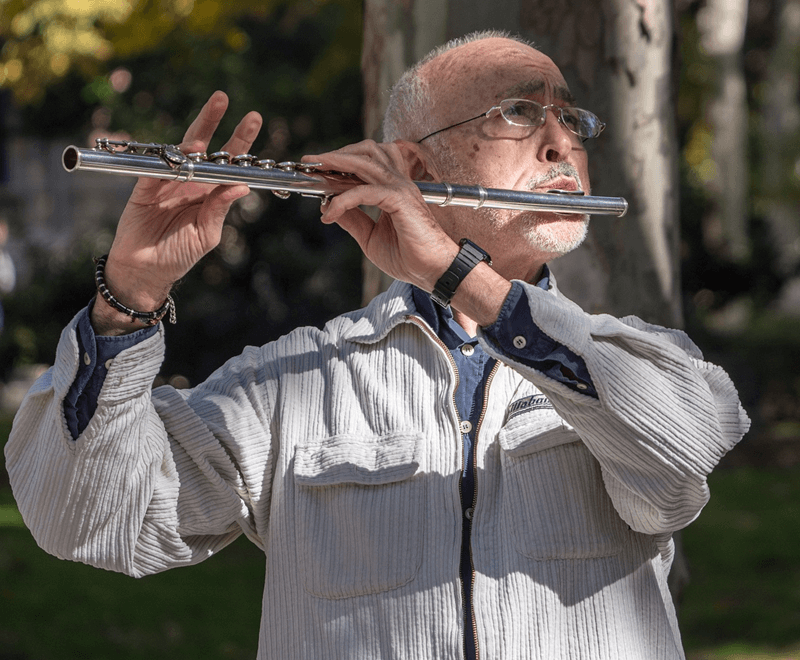Dementia presents a formidable challenge, affecting millions of individuals across the globe, gradually erasing their cognitive prowess and cherished memories. While dementia remains a disorder without a definitive remedy, many therapies and interventions strive to enhance the quality of life for those struggling with this condition. Among these tools, music therapy emerges as a powerful force. This article discusses the profound impact of music on individuals contending with dementia, shedding light on how it can captivate and forge connections, offering solace and moments of happiness amid the tribulations of this condition.
What is Dementia?
A broad category of cognitive problems that interfere with a person’s everyday life is referred to as dementia. It includes diseases including Alzheimer’s, vascular dementia, and connected illnesses. Memory loss, cognitive confusion, mood swings, and a decline in thinking skills are hallmarks of dementia.
The Impact on Individuals
Dementia extends its reach beyond memory decay , disrupting communication and emotional well-being in seniors. Those afflicted often find themselves isolated and retreating from the world as they struggle with forging new connections. The caregivers can learn effective communication strategies to address seniors’ challenges.
How Does Music Therapy Help?
- Music as a Universal Tongue: Music, the universal language of emotions, possesses the extraordinary capability to break the shackles of cognitive decline. While the accurate studies are still under exploration, it is evident that music therapy can activate different regions of the brain, even in the advanced stages of dementia.
- Awakening Memories: One of music’s most remarkable facets lies in its capacity to rekindle memories. Even those who struggle with recalling names and memories from their past can vividly recollect songs and melodies. This phenomenon can be used to re-establish connections with loved ones.
- Mitigating Anxiety and Restlessness: People living with dementia frequently struggle with anxiety and restlessness, which can be distressing for both them and their caregivers. Music exerts a calming influence, alleviating stress and facilitating relaxation.
- Facilitating Communication: As dementia worsens, effective communication gets increasingly difficult. Non-verbal communication can be facilitated by the rhythms and harmonies of music. It gives sufferers a means of communicating their ideas and making connections with others.
- Elevating Spirits and Improving Emotional Well-Being: Music has the amazing ability to elevate spirits and improve emotional well-being. It can bring moments of joy and pleasure into the lives of those who are struggling with uncertainty and sorrow.
How to Incorporate Music Therapy into Care Plans?
Integrating music therapy into dementia care plans requires careful planning and cooperation among healthcare providers, therapists, and family members. Here is a stepwise guide:
- Comprehensive Evaluation: Initiate with a thorough evaluation of the patient’s musical inclinations, history, and prevailing cognitive abilities. This assessment serves as the foundation for tailoring the therapy to the individual’s needs.
- Personalized Musical Selections: Compile customized playlists that encompass the patient’s cherished songs and preferred genres. These playlists can be employed during therapy sessions and seamlessly integrated into the daily routine.
- Sustained Sessions: Consistency is very important. Regular music therapy sessions, guided by proficient practitioners, can optimize the therapeutic outcomes.
- Progress Monitoring: Vigilantly monitor the patient’s reactions and advancements. Adjust the therapy as required to sustain its efficacy.
The Function of Caretakers
- Patience and sympathy: For people with dementia to have musical experiences, caregivers are essential. When employing music as a medium for engagement and connection for helping Alzheimer’s patients, patience and empathy are crucial.
- Monitoring Reactions: Caretakers should pay special attention to how people with dementia react to various musical genres. While some people might choose lively music, others could find comfort in classical works.
- Establish a Musical Routine: Caretakers should include music in their everyday routine. A steady musical pattern can give comfort and predictability for those with dementia, whether it’s playing music during meals or employing it as a peaceful sleep ritual.
- Keep Volume and Environment in Mind: The caretaker should take note of the music’s loudness and the setting in which it is performed. Loud or chaotic environments might be stressful for someone suffering from dementia. In a peaceful and comfortable setting, choose relaxing songs.
Conclusion
For people navigating dementia, when communication issues and memory loss are common, music is unquestionably a reliable companion. It is a crucial tool for the treatment of dementia patients because it may easily and successfully elicit memories, relieve concerns, and form emotional connections.
FAQs
- How can I make custom playlists for a dementia-affected loved one?
Gather a list of their favorite music and make digital playlists on services like Spotify or iTunes to create custom playlists.
- Is there any music that works better for those who have dementia?
Musical tastes vary, but relaxing and familiar sounds from their past frequently function well. Experiment to see what they respond to.
- Can music therapy be used in conjunction with other types of dementia treatment?
Yes, music therapy can supplement other treatments and therapies, providing patients with dementia with holistic care.
- Is there an age limit for taking part in group music therapy sessions?
Group music therapy sessions are primarily meant for people with dementia of all ages, and they can be tailored to meet a variety of requirements.
- What resources are available to caregivers to learn more about using music in dementia care?
Caregivers can seek advice from healthcare experts, support groups, and dementia-specific resources like Alzheimer’s Association.






